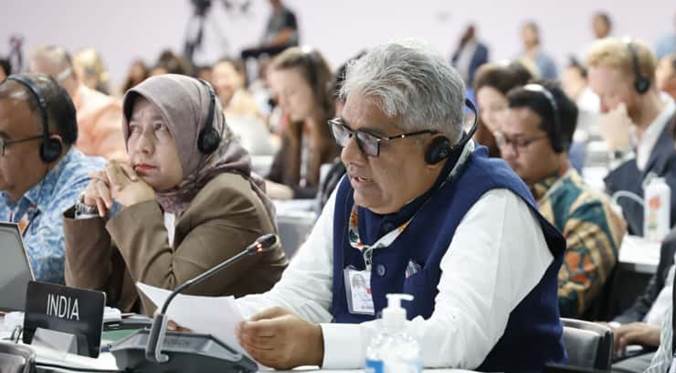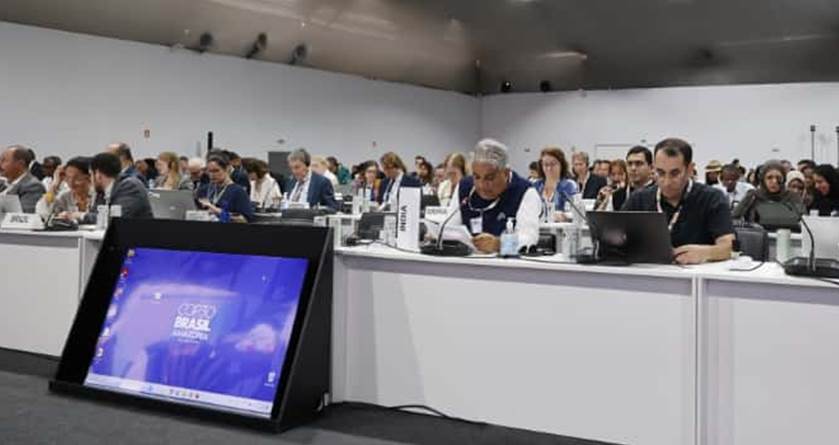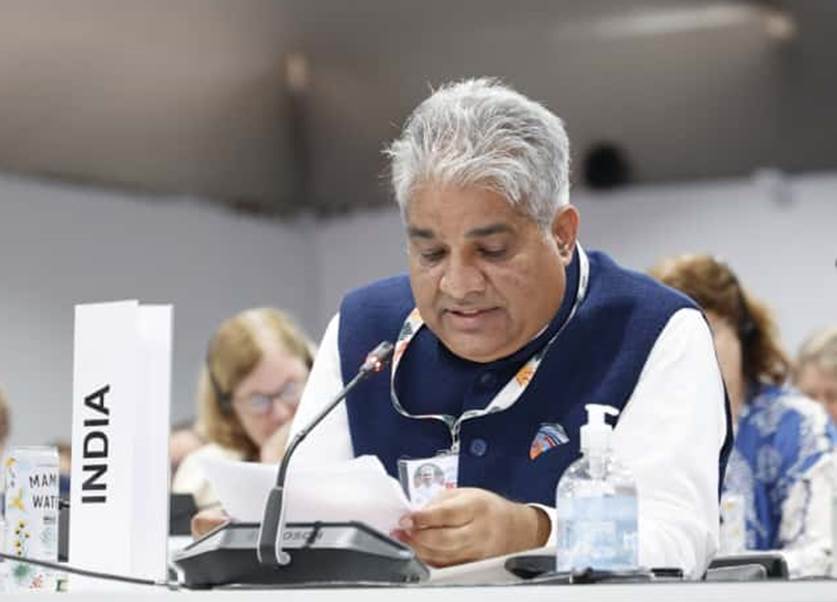Union Environment Minister Bhupender Yadav on Thursday urged the international community to substantially increase climate adaptation finance, warning that the global gap is widening despite mounting vulnerabilities. He delivered the message during the Baku High-Level Dialogue on Adaptation at UNFCCC CoP30 in Belém, Brazil.
Addressing member nations, Yadav said the lack of adaptation funding remains a key barrier for developing countries, even as climate impacts intensify. He noted the 10-year mark of the Paris Agreement and drew attention to Article 7.6, which calls for enhanced support to developing nations to take effective adaptation action.
Quoting the latest estimates, he said, “The 2025 Adaptation Gap Report estimates that developing countries will need between USD 310 and 365 billion annually by 2035, while current flows are around USD 26 billion only.”
The minister expressed concern that the target set under the Glasgow Climate Pact — doubling public adaptation finance from 2019 levels to about USD 40 billion by 2025 — is unlikely to be met. “It will take nothing less than a global collective effort to increase climate finance to the levels articulated in the Baku to Belém Roadmap to USD 1.3 trillion,” he said.
India highlights domestic progress
Despite global shortfalls, Yadav said India has made strong domestic progress in mainstreaming adaptation across national and state-level planning. “As a percentage of GDP, India’s adaptation-relevant expenditure increased by 150 per cent over seven years from 2016-17 to 2022-23,” he stated.
He also pointed to initiatives such as the National Innovations in Climate Resilient Agriculture and the National Adaptation Fund on Climate Change, which have supported climate-resilient farming practices, soil restoration and improved water-use efficiency. However, he added that many community-driven and innovation-based models remain “small in scale due to limited finance, technology and capacity.”
Barriers to finance remain high
Yadav said multilateral climate funds continue to be difficult to access. According to him, high transaction costs, slow approval procedures, limited institutional capacity, lack of clear revenue streams and weak risk-sharing mechanisms remain major hurdles that restrict the flow of private capital into adaptation projects.
He reiterated that adaptation must be country-driven, gender-responsive, inclusive, and rooted in both science and traditional knowledge, and stressed that indicators under the Global Goal on Adaptation should remain voluntary and avoid imposing additional reporting burdens.
The road ahead
Calling for a sharper political signal at CoP30, Yadav said, “Adaptation is not an optional add-on but an essential investment.” He emphasised that mitigation and adaptation are “complementary pillars” of the Paris Agreement and urged countries to move from expert-driven discussions toward structured Party-driven engagement.
He added that strengthening the National Adaptation Plan (NAP) process must remain a priority, supported by enhanced readiness programmes and simplified access to financial mechanisms.
The minister concluded by reiterating that developing countries should not be burdened with debt for climate action. “Adaptation finance must improve in both quantity and quality and must be provided through grants and not debt-creating instruments,” he said, adding that global ambition will ultimately be judged by “real improvements in the resilience of communities, ecosystems and economies.”
















